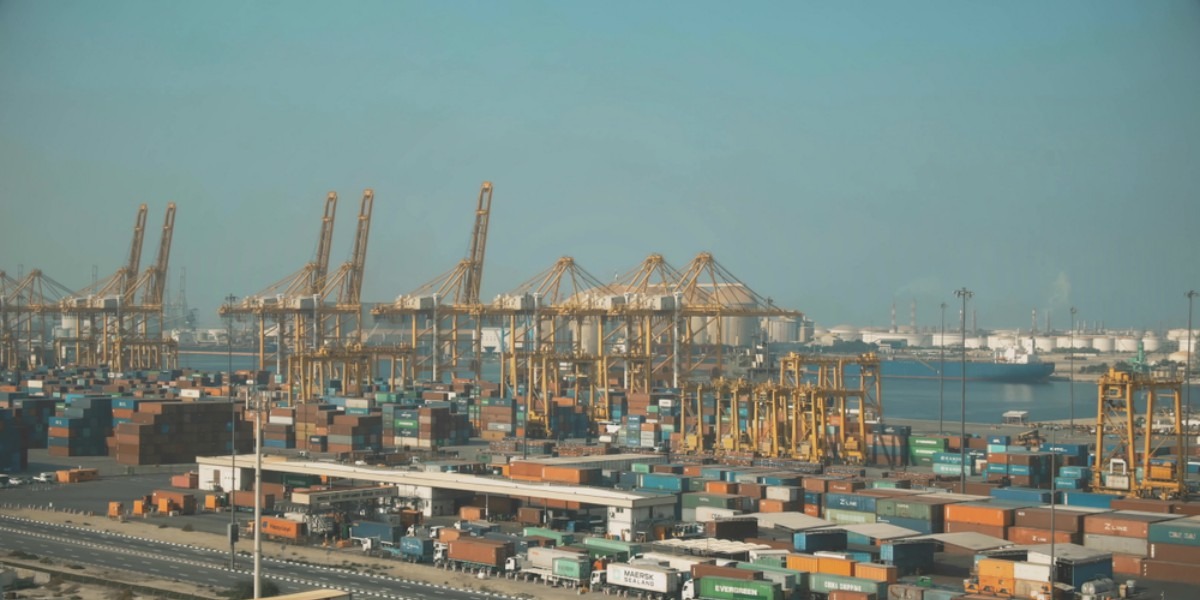Etihad Credit Insurance’s new Islamic solution aims to narrow trade finance gap and boost halal trade
DUBAI - A new Islamic solution could provide UAE businesses operating in halal trade with a competitive advantage in the international market while addressing the huge global shortfall in trade finance.
As much as 90% of global trade is currently financed through credit and insurance or guarantees, according to the World Trade Organization. Due to the pandemic, there is a gap of between $2 trillion and $5 trillion in trade finance, estimates WTO, who with the International Chamber of Commerce and B20 Saudi Arabia (the fifteenth G20 Summit in Riyadh) recently called for action to narrow the growing trade finance gap.
The export credit solutions from ECI Islamic, a new brand under UAE government-backed Etihad Credit Insurance, can narrow some of that gap, especially for the halal trade sectors. The solutions include trade credit insurance, letter of credit confirmation insurance, Islamic export finance, foreign investment insurance, and surety bonds.
“This is a big gap and another problem that companies might face in halal trade. We want to address this issue by providing the right guarantees, so that Islamic banks can fund trade receivables of exporters, whether pre-shipments or post-shipments,” said Massimo Falcioni, CEO of Etihad Credit Insurance.
ECI Islamic products have been signed off as Shariah-compliant by Dar Al Sharia and re-insured by the Islamic Corporation for the Insurance of Investment and Export Credit.
There is a shortage of Shariah-compliant trade credit insurance or export financing solutions. In the Middle East, the Islamic Corporation for the Insurance of Investment and Export Credit, a member of the Islamic Development Bank, is the only agency offering such services for countries of the Organization of Islamic Cooperation.
“We want to help fill this gap; that’s why we developed trade credit insurance policies and export financing guarantees. With the launch of ECI Islamic, UAE exporters, re-exporters and investors will have a full suite of Islamic solutions so they can start investing and exporting,” said Falcioni.
Mian Muhammad Nazir, CEO of Islamic finance advisory firm Dar Al Sharia, said the introduction of ECI Islamic will be a turning point for the Islamic finance industry.
“There is still a real gap in terms of availability of Shariah-compliant insurance cover. ECI will fill that gap, and this is the beginning of a new era for Islamic trade finance, promoting export, re-export, asset financing and to a great extent project and infrastructure financing in the UAE.”
LOWER COST OF FUNDING
ECI Islamic will increase the choices for traders, exporters and re-exporters in terms of banking and finance partners, and will have a huge impact on their cost of funds, especially for mid-corporates for whom cost of funding is an issue, according to Nazir.
“When you have credit insurance or a guarantee from a government entity for a project, this will help bring the cost of funding down. It will also help them better manage their liquidity, opening a credit line for them at a reasonable cost.”
ECI Islamic says its new solutions will help companies recover the cost of fulfilling an order that is terminated by events outside their control, such as insolvencies and non-payments, all of which are hitting businesses amid the pandemic.
In addition, companies that use these solutions can get loans and additional funding capacity from banks at a concessional rate, guaranteed by ECI. They can also tap alternative supplies through ECI’s network of 360 million companies worldwide.
“As part of our strategy, we do not have any minimum ticket size or requirement. No matter how small of a company you are or the size of your portfolio, we can support you. We are bringing more confidence into the financial system,” said Zishan Iqbal, director of Murabaha Solutions at Etihad Credit Insurance.
“We have initiated discussions with banks requesting them to lower the bar for their eligibility criteria and raise the minimum support they can provide. For banks, it becomes a doable and sellable transaction when a federal government entity is stepping in and providing support in the form of a guarantee or insurance cover,” said Iqbal.
Trade credit is a type of commercial financing in which a customer purchases goods or services under ‘credit’ and pay the supplier at a later scheduled date. This arrangement, however, gives rise to a higher risk of non-payment – and this is where protection from an organization such as ECI comes in handy.
“We are protecting commercial and non-commercial risks for our partners, whether Islamic banks, small and medium enterprises, investors, or large corporates,” said Iqbal.
ECI is also part of Aman Union, a forum comprising all export credit agencies of OIC member countries.
“We have created an ecosystem as we are not only providing our solutions locally, but we’ve also partnered with export credit agencies in OIC member countries. You’ll be surprised to hear that European export credit agencies are also keen to partner with us and learn about Shariah-compliant solutions,” said Iqbal.
BOOSTING CROSS-BORDER HALAL TRADE
The Dubai Islamic Economy Development Center hopes the Shariah-compliant solutions from ECI Islamic will boost the halal industry.
“Comprehensive Islamic insurance and re-insurance can significantly boost cross-border halal trade and give the UAE the strategic advantage of reinforcing its position as a global hub of halal trade,” said Wadha Al Ghfeli, DIEDC’s director of strategy and planning.
DIEDC and Dubai Airport Freezone Authority (DAFZA) last year launched the Halal Trade and Marketing Centre to help promote halal trade, and in June this year, the Center signed an MOU with ECI to jointly implement initiatives that can boost the UAE’s Shariah-compliant exports.
(Reporting by Heba Hashem; Editing by Emmy Abdul Alim [email protected])
© SalaamGateway.com 2020 All Rights Reserved
